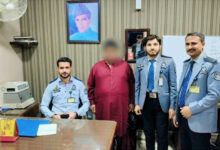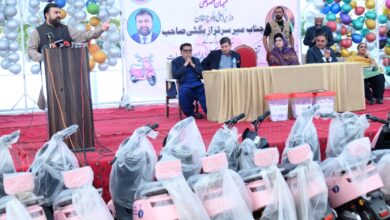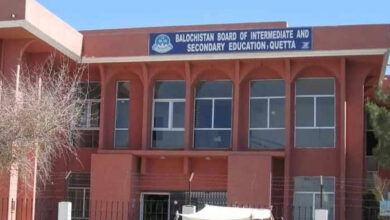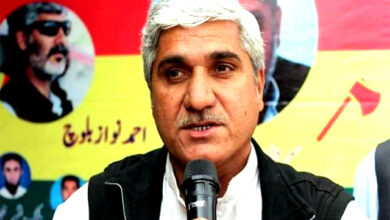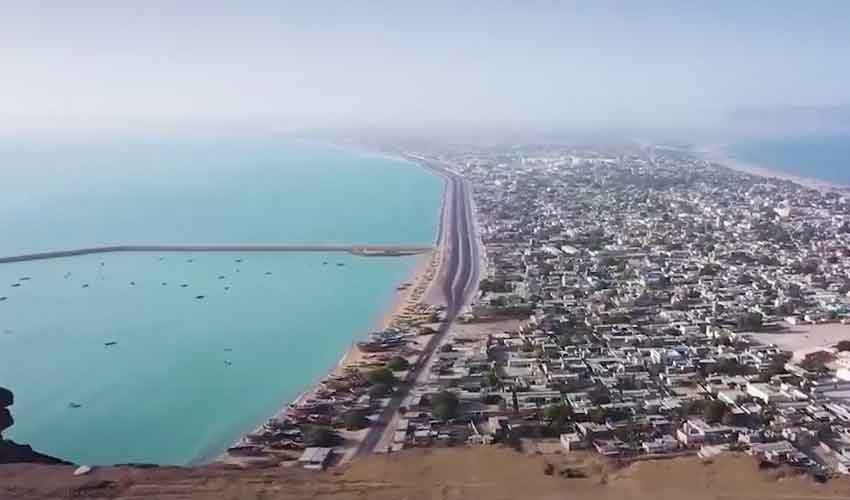PTI Convoy Heads to D-Chowk Amid Clashes with Police
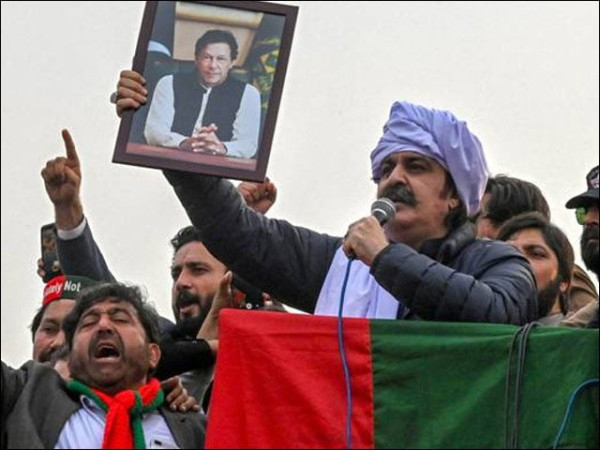
Islamabad: A large convoy led by Khyber Pakhtunkhwa Chief Minister and opposition leader Omar Ayub, along with Pakistan Tehreek-e-Insaf (PTI) workers, has entered Punjab en route to D-Chowk in Islamabad, following a call by PTI’s founder, Imran Khan. The convoy, which departed from Hazara Interchange, encountered severe resistance from police forces, including intense shelling at Ghazi Brotha Bridge.
At Hazara Interchange, Omar Ayub’s convoy pushed back Punjab police, with PTI leader Ali Amin Gandapur successfully extracting the convoy from police encirclement. Thousands of vehicles are now part of the caravan, with reports suggesting a 2-kilometer-long stretch of vehicles.
Clashes in Attock and Surrounding Areas
The protest escalated as police clashed with demonstrators on the Hazara Motorway. At one point, protesters seized control of the Hazara Motorway Bridge, injuring four police officers in the process. Protesters set fire to two private vehicles and began removing containers placed by authorities to block the route.
Meanwhile, the convoy from Mianwali reached Dhoke Miskeen on the CPEC route, facing strong resistance at the Hakkla Interchange. Police attempted to repel the protesters but had to retreat as a large number of PTI supporters gathered nearby.
Violent Confrontations and Arrests
As PTI convoys entered Punjab, the clashes intensified with police, resulting in injuries and arrests. A significant confrontation took place at Attock Bridge, where protesters clashed with police, throwing stones and setting a Suzuki vehicle on fire. Some protesters also targeted a police officer with a motorcycle, injuring and beating him.
The violence continued across various regions, with authorities reporting several arrests, including senior PTI leaders. Among those detained were PTI Chief Whip Amir Dogar and MNA Zain Qureshi, both arrested by Punjab Police at the Qadirpur Toll Plaza near Multan.
In Islamabad, authorities have designated the CIA Center as a sub-jail, where arrested protesters will be detained. Over 60 demonstrators were taken into custody in the capital, and additional arrests occurred in Rawalpindi and Faisalabad, where over 75 people were detained while attempting to join the protest.
Government’s Preparations for Potential Escalation
The federal government, under pressure from a potential escalation of the protests, has implemented stringent security measures. Police, Rangers, and FC personnel have been deployed across Islamabad and surrounding areas to prevent any disruptions. Major roads leading into the capital, including the M-1 and M-2 motorways, have been sealed with containers.
Interior Minister Mohsin Naqvi conducted an aerial survey of the security arrangements and emphasized the government’s commitment to maintaining public order. “We are ready to handle any situation and will take strict legal action against those attempting to disrupt peace,” Naqvi said.
The government has also raised concerns about possible terrorist threats linked to the protests, with intelligence reports warning of militants entering from the Afghan border. In response, the authorities have heightened security across key regions, including blocking highways, sealing off entry points to Islamabad, and suspending mobile and internet services in some areas.
Protest Call Continues Despite Crackdown
Despite heavy police resistance, PTI leaders, including Omar Ayub and Bashira Bibi, have urged their supporters to push forward to Islamabad, promising not to return without securing the release of their leader, Imran Khan. The PTI leadership is determined to continue their protests, calling for the removal of obstacles and the restoration of democracy.
Authorities have made it clear that no one will be allowed to defy court orders related to public gatherings, and violators will face legal consequences.
